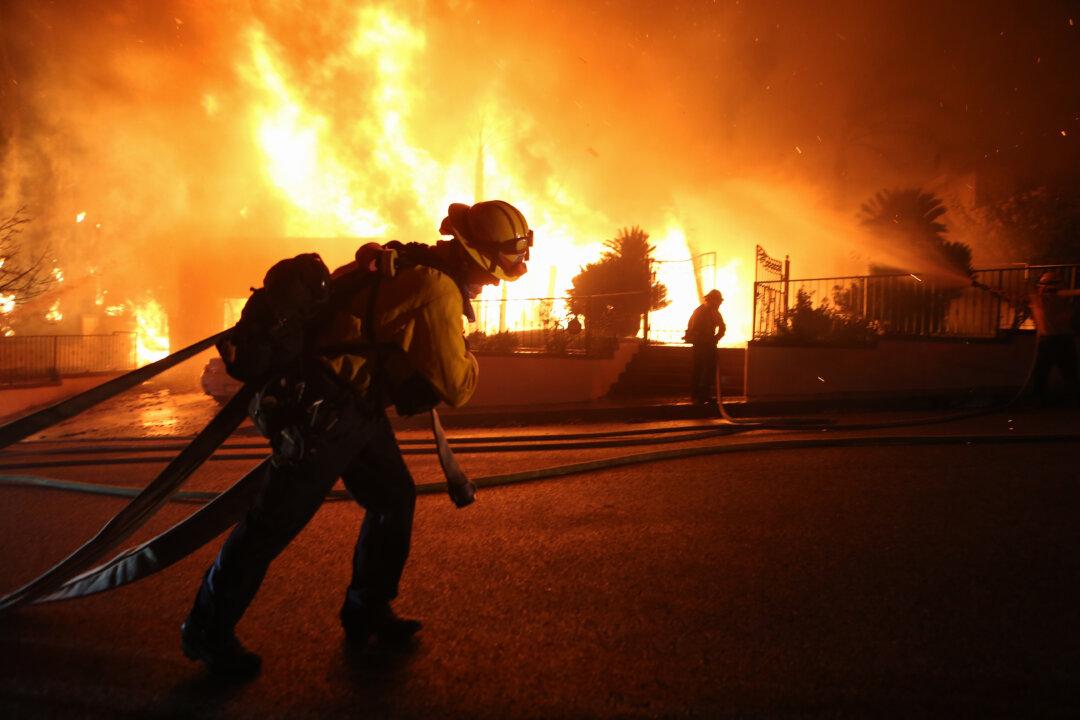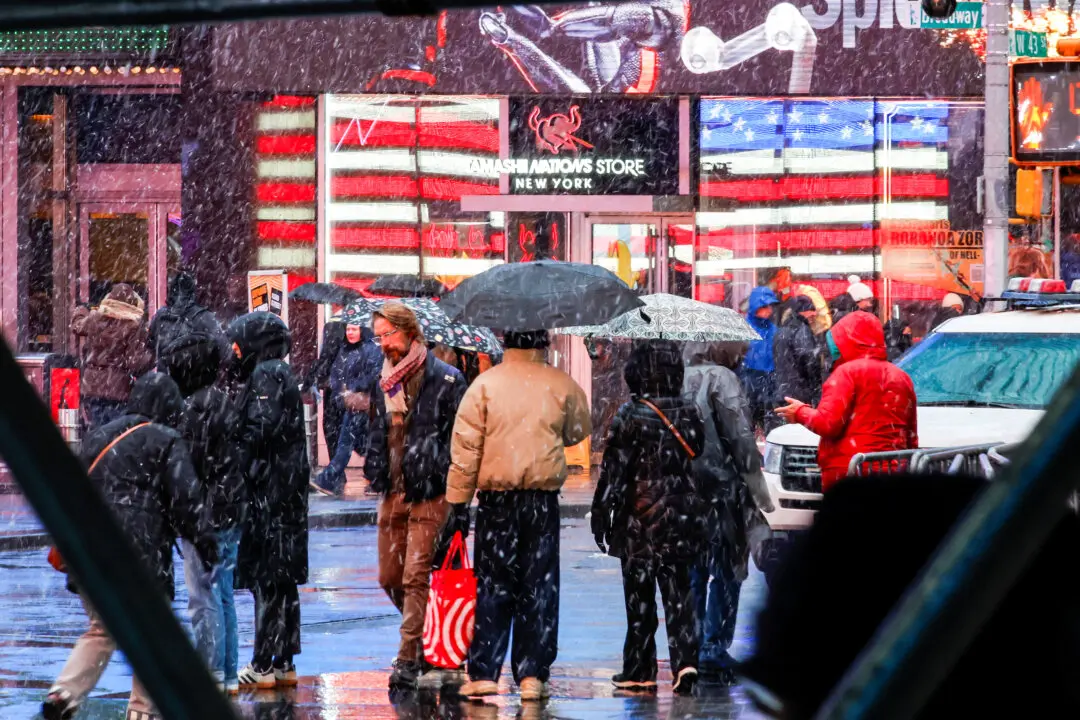LOS ANGELES—Firefighters have tightened their grip on a deadly Los Angeles wildfire burning with subdued fury on Oct. 13 after extremely dry desert winds that had stoked the flames gave way to moister, gentler breezes blowing in from the Pacific.
The so-called Saddleridge fire, which erupted on Oct. 10 and raced across the northern edge of Los Angeles’ San Fernando Valley, had scorched nearly 8,000 acres (3,237 hectares) by Oct. 13 but was mostly confined to foothills and canyons away from populated areas, fire officials said.





